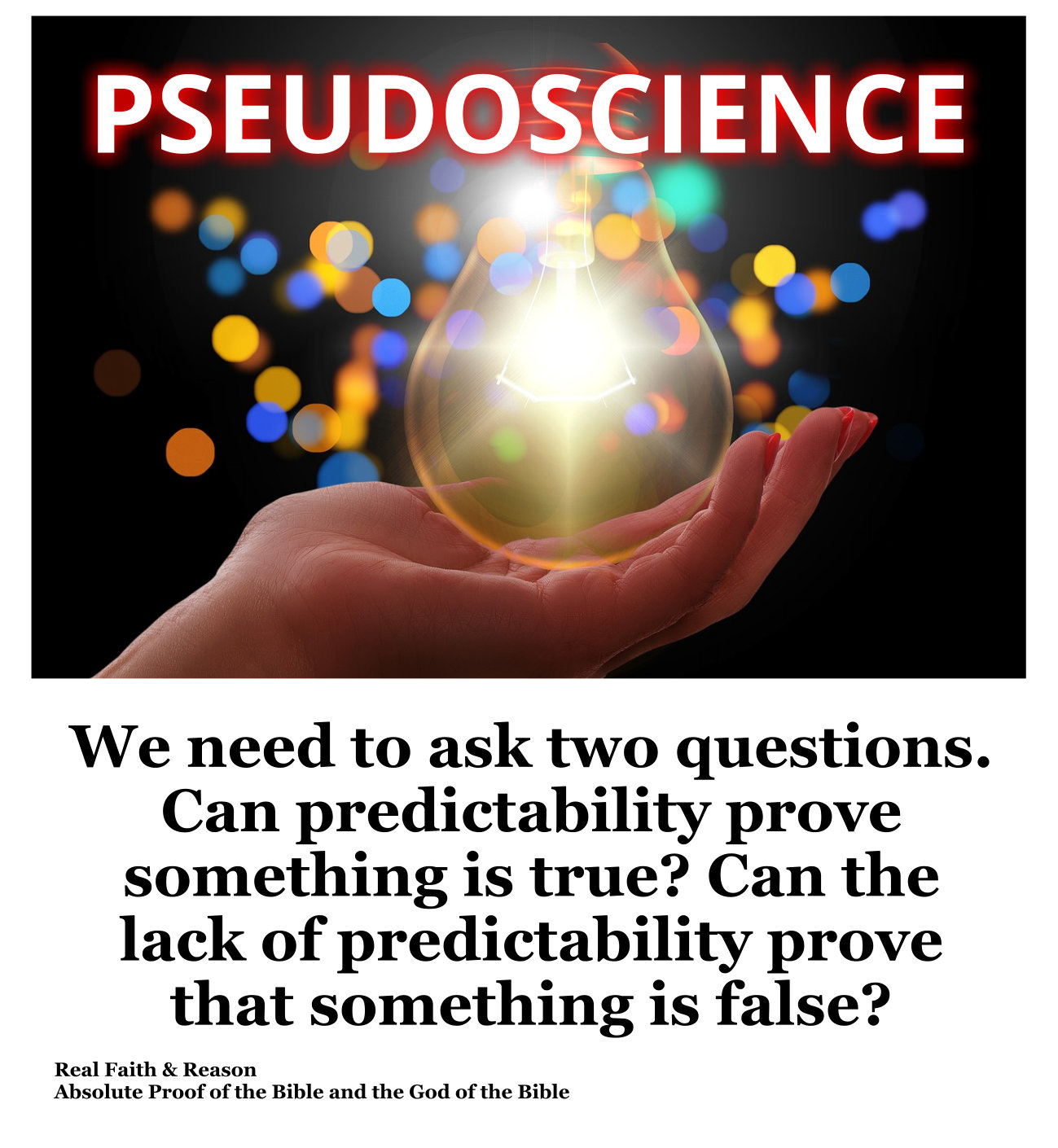
<quote from Real Faith & Reason, vol 2>
Of course, our subject is reason, not evolution. We’re just using evolution as an example to illustrate a point about knowing and how we can have knowledge of the truth. At present, evolutionists can’t make predictions work for the stories of evolutionism. So some evolutionists want to dismiss the idea of predictions in science. We need to ask two questions. Can predictability prove something true? Can the lack of predictability prove something false?
Affirming the Consequent
Trying to use predictions as proof brings us to a fallacy known as affirming the consequent. Of course, affirming the consequent is a formal fallacy, a fallacy of form. It’s an error in the way we use the premise to prove the conclusion. While this fallacy might seem complicated at first, it’s simple, so we’ll understand it in the next few paragraphs.
While predictability can’t prove any claim, it can create confirmation bias using the logical fallacy of affirming the consequent. But evolutionists imply predictability proves their claims.
First, let’s state the evolutionists’ argument as a syllogism. Their predictions aren’t true predictions, so some of their premises aren’t true. However, we’ll ignore this problem for now. We’re going to ignore the untruths in the premises. We’re only looking at the formal fallacy of affirming the consequent.
Premise 1: If a big bang happened, we would predict finding cosmic microwave background noise, stars moving away from us, and hydrogen, helium, and other trace elements having a certain ratio.
Premise 2: We find cosmic microwave background noise, stars moving away from us, and hydrogen, helium, and other trace elements having the expected ratio.
Conclusion: Therefore, everything started with a big bang.
As stated, some of the premises aren’t true. But we’re ignoring the untrue premises for this example because we’re focusing on understanding the formal fallacy of affirming the consequent. Even if the argument used true premises, this argument doesn’t prove the conclusion. The form isn’t valid. The form isn’t rational. It’s not sound logic. It gives the illusion of being sound, but it’s irrational.
Fallacies that fool us sound good, but they’re irrational. While we may not detect what’s wrong with the logic in a tricky example like Bill Nye gave us, we quickly detect the error if we look at the same logical form with something obvious. For an easy example, imagine a friend of yours commits this same fallacy, and here’s what your friend says about you:
Premise 1: If you were an evil person, then I would predict I would sometimes be mad at you.
Premise 2: I’m sometimes mad at you.
Conclusion: Therefore, you’re an evil person.
Premise one may be true, and premise two may be true, but the form makes the conclusion unreliable. Let’s have another example. This one is a friend talking to you on the phone.
Premise 1: If you don’t exist, then I would predict I wouldn’t be able to see you.
Premise 2: As predicted, I’m not able to see you.
Conclusion: Therefore, you don’t exist.
Here’s a quote on this subject [the affirming the consequent fallacy] from “Inside the Nye-Ham Debate,” page 123:
“Allow me to explain this fallacy further using the Greek myth about Helios. Helios was the Greek ‘god’ that allegedly drove the sun across the sky in a chariot. Let’s say a Greek mythologist said, ‘there was predictive power’ in Greek mythology, then proceeded to explain that in Greek mythology, the sun rising, setting, and going across the sky is good. Since we see the sun rising, setting, and going across the sky, the explanation provided by Greek mythology is proof of a Greek mythology’s predictive power. After all, how else would you explain it? Do you note the absurdity in this similar analogy?”
<end quote>
#RealFaith&Reason
Have you read this FREE book yet? “Real Faith & Reason” gives the absolutely certain proof of the Bible and the God of the Bible and shows how you can have real faith. This is faith that changes situations and transfigures you from glory to glory.
You can get your FREE copy of Real Faith & Reason, which shows the intersection of faith, reason, truth, and sanity.
http://RealReality.org/Real_Faith_and_Reason_Vol_2_-_Scientia.pdf
Follow on
https://mewe.com/i/petrosscientia
https://usa.life/PetrosScientia
https://parler.com/profile/Petros542287384712/posts
https://www.facebook.com/knowingrealreality
